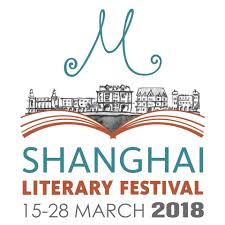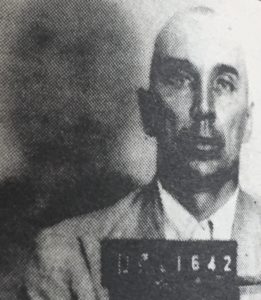Posted: March 21st, 2018 | No Comments »
Somhow I got roped into doing this panel in Beijing at the Bookworm International Literary Festival. I’m not quite sure how as I know absolutely nothing and could care less about banking, investment, political relations and all that old shenanigans. Given that my interest in Beijing ends roughly a month after Harold Acton left and my love of Shanghai effectively finishes around May 1940 I may not be called upon often to speak!! I fera the bias may already be kicking in by positioning the Forbidden City as equivalent to the God awful Pearl Tower!!
BEIJING VERSUS SHANGHAI: WHO’S THE FAIREST OF THEM ALL?

Please join us Mar. 21 for a panel discussion of BEIJING VERSUS SHANGHAI: WHO’S THE FAIREST OF THEM ALL? During March Beijing book-lovers gather for the Bookworm Literary Festival — and this year the Royal Asiatic Society Beijing (RASBJ) has helped organize a festival event. Come hear prominent authors — all veteran China hands — debate which city is hot and which is not, and why, as China grabs the spotlight on the global stage. It’s an age-old question, but we face new circumstances – politics, economic policies, tech development, even pollution patterns are changing. And with them the balance between these mega cities. To debate this thorny issue, join Paul French (City of Devils), James McGregor (No Ancient Wisdom, No Followers), and Jim Stent (China’s Banking Transformation), with Newsweek’s Melinda Liu as moderator. Organized by the Royal Asiatic Society Beijing for the Bookworm Literary Festival
WHAT: “Beijing Versus Shanghai: Who’s the Fairest of Them All?”, a panel discussion
WHEN: Mar. 21, Wednesday from 8:00 PM to 9:30 PM
WHERE: The Bookworm, Building 4, Nan Sanlitun Road, Chaoyang District, Beijing, tel: 6586 9507
HOW MUCH: 80 RMB
RSVP: Buy a Ticket here for event BW21-8 or go to the link.
NOTE TO RASBJ MEMBERS: Because this event is part of the literary festival, Bookworm is handling ticket sales and pricing
Posted: March 20th, 2018 | No Comments »
Tuesday, 20th March 2018
7:00 pm – 9:00 pmRAS Library
Treasures of the RAS Library
Speaker: Tess Johnston and Paul French

The old RAS Shanghai Library was resurrected in 2007; recreated thanks to donations and some selective purchasing from Society funds. After several moves it now resides in the House of Roosevelt with 3,000 books and associated archival materials. Within this collection are some amazing gems for the writer, researcher, scholar, or the just plain curious. Tess Johnston and Paul French have been involved with the library since it’s recreation as donors, cataloguers and active users. Join us for a glass of wine and some literary conversation as they select some choice “finds†from the collection, explain why they are truly unique and read a few revealing selections.
Tess Johnston is uniquely qualified to recommend treasures from the RAS Library. She first came to Shanghai in 1981 to work at the American Consulate General and in 1996, after over thirty years in the diplomatic service, she retired and stayed on to research, write, and lecture. Now living back in America she is working on her memoirs.
Paul French lived and worked in Shanghai for many years. He is a widely published journalist and commentator on China and has written a number of books, including a history of foreign correspondents in China and a biography of the legendary Shanghai adman, journalist and adventurer Carl Crow (whose archive resides in the RAS Library). French’s new book City of Devils is his much-anticipated second literary non-fiction book, following Midnight in Peking, which was a New York Times Bestseller.
Note: Due to limited seating, only those on the RSVP list will be admitted into the Library.
RSVP : bookings@royalasiaticsociety.org.cn
ENTRANCE: Members: 0 RMB Non Members: 50 RMB
VENUE: RAS Library; 3rd Floor, House of Roosevelt, 27 East Zhongshan Yi Rd, near Beijing East Rd (ä¸å±±ä¸œä¸€è·¯27å·3楼罗斯ç¦å…¬é¦†ï¼Œè¿‘北京东路) 200031
Posted: March 18th, 2018 | No Comments »
Monday, March 19, 7pm
CITY OF DEVILS: A SHANGHAI NOIR
æ¶é”之城:一个上海黑帮
Paul French
It’s time to go back and explore Shanghai’s Badlands…

Immerse yourself in 1940’s Shanghai with this astonishing story of two men whose lives intertwine in crime and twisted friendship. In a city under siege Viennese Joe Farren rose to fame by cashing in on Shanghai’s desperate pleasure seeking. King of the chorus lines, his name was splashed in neon across the infamous Badlands nightclub ‘Farren’s’. American fugitive Jack Riley, his fingertips acid-burnt found a future in Shanghai as ‘The Slots King’. ‘Dapper Joe’ and ‘Lucky Jack’ collided, clashed and came together again in a frantic struggle to survive the city’s last days. In City of Devils: A Shanghai Noir Paul French resurrects the denizens of old Shanghai’s ganglands, the drug-running, the gambling, and the graft, vividly restoring this long-overlooked side of the city’s history.
是时候回到那个曾ç»é£Žèµ·äº‘涌的上海,去找寻ã€åŽ»å‘现······
è®¾æƒ³ä½ ç½®èº«äºŽå››å年代的上海,置身于两个男人惊心动é„的故事里,他们的生活被罪æ¶å’Œæ‰æ›²çš„å‹è°Šçº ç¼ åœ¨ä¸€èµ·ã€‚åœ¨ä¸€ä¸ªæ²¦é™·çš„åŸŽå¸‚é‡Œï¼Œç»´ä¹Ÿçº³äººJoe Farrené é’»è¥ä¸Šæµ·äººçš„寻欢作ä¹è€Œæˆå。他是åˆå”±é˜Ÿçš„领军人物,他的åå—在è‡åæ˜è‘—的夜总会Farren’s的霓虹ç¯ä¸é—ªçƒã€‚从美国逃亡而æ¥çš„Jack Riley,虽指尖被酸烧残,但他在上海æˆä¸ºäº†â€œè€è™Žæœºä¹‹çŽ‹â€ã€‚“精明强æ‚çš„ä¹”â€å’Œâ€œå¹¸è¿çš„æ°å…‹â€åœ¨åŸŽå¸‚的末世飘零ä¸ï¼Œä»–们碰撞,冲çªï¼Œä»–们åˆæ®‹é…·çš„生å˜æ–—争走到一起。在《æ¶é”之城》ä¸ï¼ŒPaul French呈现了旧上海帮派ä¸çš„外æ¥æ—裔ã€æ¯’å“èµ°ç§ã€èµŒåšå’Œè´ªæ±¡ï¼Œç”ŸåŠ¨åœ°å†çŽ°äº†è¿™åº§åŸŽå¸‚在历å²ä¸æ¹®æ²¡çš„一é¢ã€‚
This event will be in English.本活动为英文专场。

Posted: March 16th, 2018 | No Comments »
Great news – my event his Staurday (12pm) at the M on the Bund Literary Festival – RECOVERING THE LOST STORIES OF SHANGHAI – SHOWGIRLS, GYPSIES & GANGSTERS – was sold out. But, M have reconfigured their seating and can now fit in an addition 20-30 people…tickets from their site and more details of the event here too…

Posted: March 14th, 2018 | No Comments »
And finally (no.22 for those counting), the last gang of old Shanghai, in association with That’s Shanghai magazine – The Spider Club gang who met and schemed in a house on West End Gardens off Yu Yuen Road….click here for more…

Posted: March 13th, 2018 | No Comments »
Today’s gang of old Shanghai, in association with That’s Shanghai magazine, is the Lojnikoff Gang, run by Paul Lojnikoff and made up mostly of current and former boxers. They were one of the only Shanghai laowai gangs to thrive in the war as collaborators and briefly operate in the post-1945 city….click here for more

Posted: March 12th, 2018 | No Comments »
Today’s gang of old Shanghai in association with That’s Shanghai – The Hovans gang run by Eugene Pick (pictured) out of his “wifes” lodging/brothel in Hongkou – click here for more….

Posted: March 12th, 2018 | No Comments »
books have arrived – officially launch date is 15/3…









